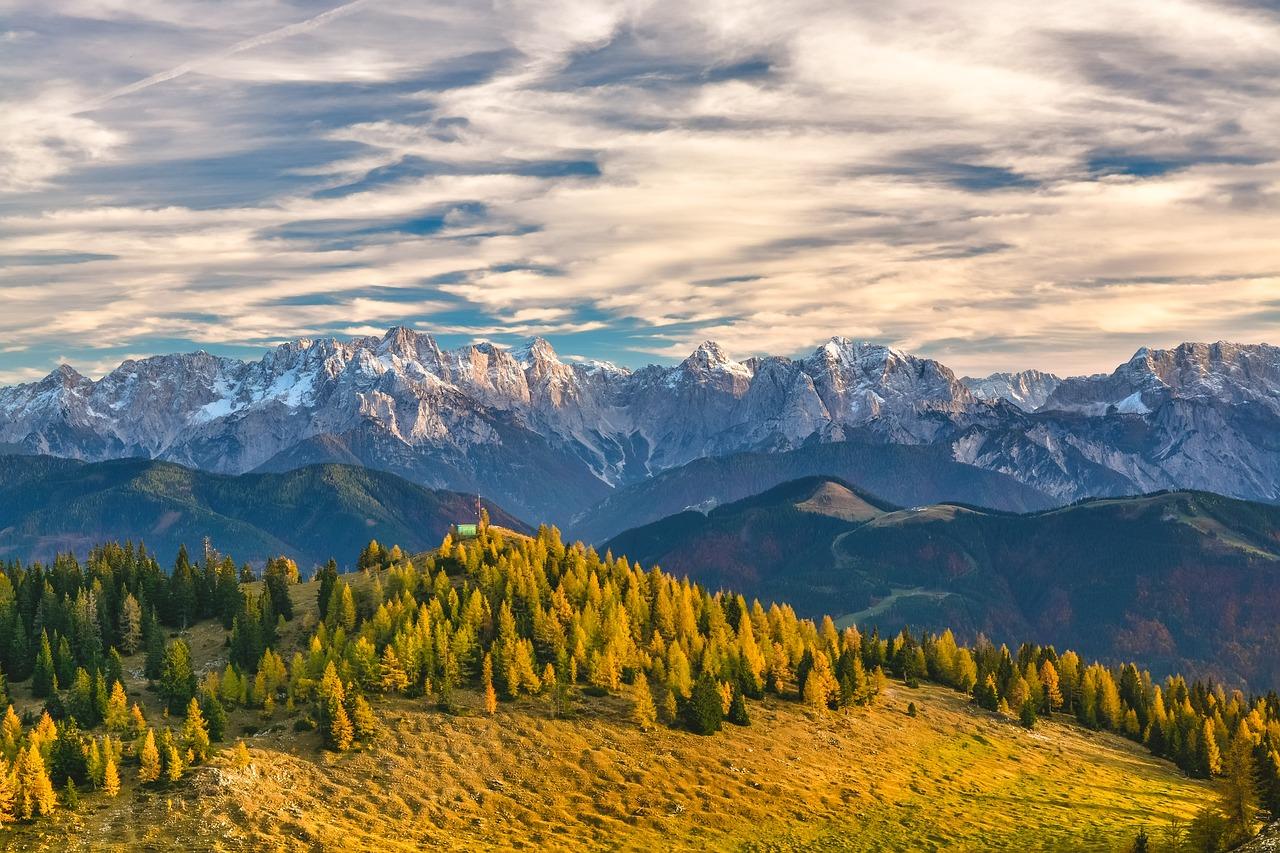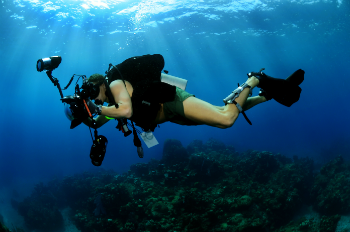Employers and Universities: Work with us?

10 cool environmental jobs you could do
If you want to join the fight against climate change and take your love for the planet to the next level, you might want to think about getting a green job.
There are loads of opportunities to work in the environment. You could be researching how rising sea levels affects our health, or coming up with brilliant new ways for us to generate power. You could be working in an office, at the top of a volcano or under the sea. Some roles require strong maths and analytical skills, others are for creative problem-solvers.
Here are 10 of the coolest environmental jobs out there right now.
1. Volcanologist
Volcanologists (best job title ever, right?) study volcanoes and the conditions that create them. The aim is to understand how volcanoes work and predict future eruptions for the safety of people who live nearby.

Volcanologists journey to exotic locations to collect samples from active or dormant volcanoes. They map out the rock formations that make up a volcano, and explore how volcanoes erupt.
To pursue this role, you will usually need an undergraduate degree in geology, geophysics or earth science. Most volcanologists also have a masters’ degree or PhD.
Check out this interview with Dr Lorraine Field where she explains what it was like to be at the world’s largest lava lake.
2. Wind energy engineer
In a nutshell, wind energy engineers extract energy from wind. Wind is an important renewable energy, so this role is one of the environmental jobs that helps us rely less on fossil fuels. This area of engineering involves designing and building wind turbines and wind farms.
These guys have a head for maths and science, and they’re good at coming up with clever answers to challenges. Sometimes they work in teams, sometimes independently.
3. Climatologist
A climatologist investigates patterns in weather and climate so that we can understand conditions in different parts of the world. It’s a bit like what a meteorologist does, except they look at a much longer timescale – exploring patterns over months, years and centuries. Climatologists can make a really important impact on the environment, because they can use their research to tell governments and companies how to be greener.
For this role you’ll need an undergraduate degree in science, usually followed by a master’s in climatology. As well as studying maths and science at school, work experience will help get you started.
4. Environmental scientist
One of the key environmental jobs is an environmental scientist. They study the environment and how plants, animals and humans are affected by it. Their research helps them give advice on what might be harming the environment and how to tackle it.

If you’re interested in this career it’s a good idea to study biology and chemistry at school, because you will need a degree in environmental science or a closely related field.
5. Countryside officer
Otherwise known as conservation officers, these guys protect and improve the rural environment. Their tasks could include advising landowners on how to manage their land, making sure the public can access the countryside, and making sure parks and forests are maintained.
Countryside or conservation officers need to develop good people skills, organisational abilities and a talent for negotiating.
You may need a degree in a subject such as biology, environmental management, ecology or geography. You can also pursue this career by doing an apprenticeship instead of going to university. Search for “environmental conservation” on the government’s apprenticeship tool to see the current openings.
6. Ecologist
Ecologists examine the relationship between animals, plants and the environment. They typically specialise in a type of environment, like coastal areas, or a kind of animal or plant. Ecologists carry out research in the field, working with animals or observing plants, then recording their findings. They look at how humans affect the environment and keep track of pollution.
These professionals have a methodical approach, are great at interpreting and explaining data, and have project management skills. To become an ecologist, you’ll need a degree in a subject like ecology, conservation biology or zoology. Make the most of work experience to give yourself the edge when applying.
7. Environmental lawyer
When it comes to environmental jobs, you don’t necessarily have to get a scientific job. Environmental lawyers use their legal knowledge and analytical skills to make our world greener. They could be advising big companies about their legal obligations to the environment. They also work for the government, helping to come up with new laws that protect the earth.
This is a complicated area of the law that’s changing and developing all the time. Environmental lawyers are decisive with a very strong sense of judgement. To pursue this role you’ll need a law degree.
8. Landscape architect
Landscape architects design, create and manage the landscapes that we live and work in. They asses the environmental impact of different designs and make sure the landscape is suitable for the people who use it.
Landscape architects are creative and also practical, having great drawing skills and a good eye for detail.
9. Oceanographer

An oceanographer is a scientist who studies the ocean and everything involved with it.
There are four areas: biological (studying marine plants and animals); physical (looking at water temperature, density, and wave motion); geological (exploring the structure of the ocean floor); and chemical (investigating the chemicals in sea water and how pollution affects it).
Oceanographers have top observational and practical skills, as well as a head for maths and good attention to detail. To become an oceanographer, you'll need a degree in oceanography or a related subject, and a master's degree.
10. Environmental health officer
Environmental health officers make sure our surroundings are safe and healthy. They deal with issues like food safety, environmental protection, water standard, pollution control, and animal welfare.
They have top negotiation skills, know how to communicate with different professionals, and are good at making the most of their time.
These are just a handful of the fantastic environmental jobs you could do. Check out our Agriculture & Environment Career Zone for more.
Related posts
Career Zone: Science and Research
What’s all the fuss about STEM?
How to make a difference in your career
Image credits
Environmental scientist by US Army Corps of Engineers via Flickr; and oceanographer via Wikimedia Commons.
